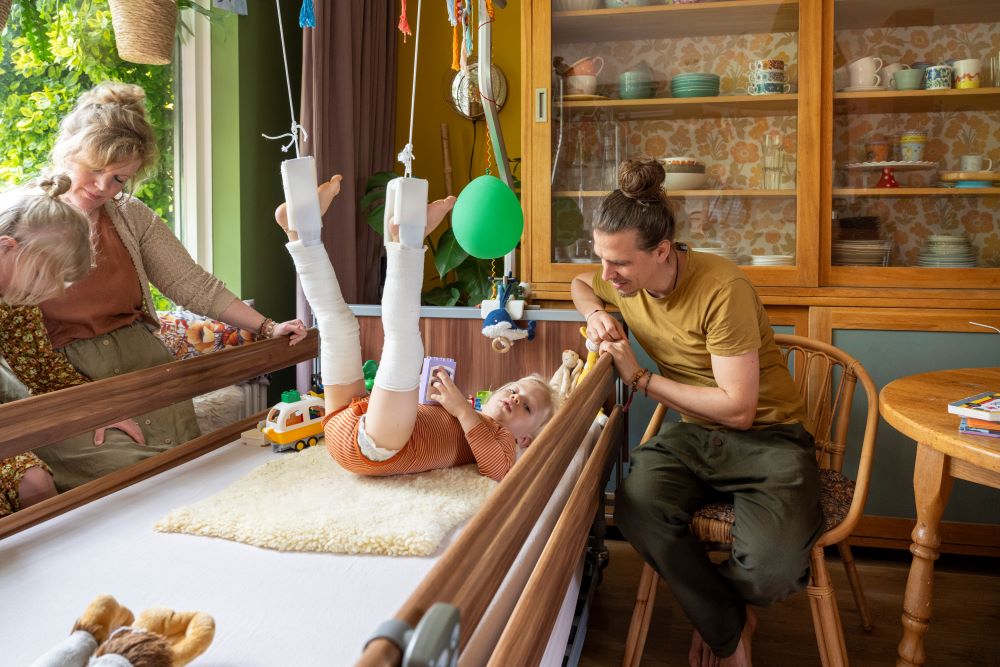Last Updated on November 21, 2024 by Michelle Wan
Children with birth injuries often face unique challenges in their learning and development. Conditions such as cerebral palsy, hypoxic-ischemic encephalopathy (HIE), or other neurological impairments can affect motor skills, cognitive development, speech, and sensory processing. Educational support is crucial to help these children overcome obstacles, reach their potential, and participate fully in academic and social activities.
This article explores the various educational support systems available to birth injuries for children, how families can access them, and the resources to navigate the process effectively.
Why Educational Support Is Essential
Birth injuries can impact a child’s ability to meet traditional developmental milestones, making it difficult to thrive in a standard classroom setting. Educational support groups provide tailored assistance to:
- Address Learning Challenges: Individualized strategies help children overcome cognitive, motor, or sensory impairments.
- Promote Inclusion: Ensures children with disabilities participate alongside peers in meaningful ways.
- Foster Independence: Builds skills that enable children to succeed academically and socially.
Types of Educational Support for Birth Injuries
Early Intervention Programs
Purpose: Designed for children from birth to age three, these programs provide early support to address developmental delays caused by birth injuries.
Services: Include physical therapy, speech therapy, and developmental activities to enhance cognitive and motor skills.

Access: Families can inquire through their state’s early intervention program or healthcare providers.
Individualized Education Plans (IEPs)
Purpose: An IEP is a legal document developed for children in public schools who qualify for special education services. It outlines the child’s special needs, goals, and the accommodations required for success.
Key Components:
- Specialized instruction tailored to the child’s abilities.
- Access to therapists, such as occupational or speech therapists, within the school system.
- Modifications like extended time on tests or assistive technology.
How to Get One: Parents must request an evaluation through their local school district to determine eligibility.

504 Plans
Purpose: For children with less severe disabilities who do not require an IEP, a 504 Plan provides accommodations to support learning in a general education classroom.
Examples of Accommodations:
- Preferential seating in the classroom.
- Adjustments to physical activities or alternative assignments.
- Assistive devices for writing or communication.
Assistive Technology
Purpose: These tools help children with physical, speech, or cognitive impairments participate more fully in their education.
Examples:
- Communication Devices: Tablets or AAC (Augmentative and Alternative Communication) systems for children with speech difficulties.
- Mobility Aids: Adapted desks or chairs for children with motor challenges.
- Learning Tools: Text-to-speech software or apps designed for children with learning disabilities.

Specialized Schools
Purpose: Some children benefit from attending schools specifically designed for students with disabilities. These schools offer smaller class sizes, customized curriculums, and access to therapy services.
Examples: Schools for children with neurological conditions or sensory impairments.
How to Advocate for Your Child’s Educational Needs
Request Evaluations
Contact your local school district to request a full evaluation of your child’s needs. This is the first step to determining eligibility for IEPs or 504 Plans.
Participate in IEP or 504 Plan Meetings
Be an active participant in planning meetings. Share insights into your child’s strengths, challenges, and goals to ensure the plan meets their needs.
Monitor Progress
Regularly review your child’s progress and communicate with teachers and therapists. Adjust the plan as needed to reflect new challenges or achievements.

Know Your Rights
Please familiarize yourself with federal laws like the Individuals with Disabilities Education Act (IDEA) and Section 504 of the Rehabilitation Act to ensure your child receives the accommodations they are entitled to.
Resources to Support Families
Government Programs
The Individuals with Disabilities Education Act (IDEA) ensures children with disabilities receive free and appropriate public education (FAPE).
State Early Intervention Services: Available for children under three with developmental delays.
Nonprofit Organizations
United Cerebral Palsy (UCP): Provides resources and advocacy for children with mobility challenges.
The Arc: Offers support for individuals with intellectual and developmental disabilities.

Financial Assistance for Educational Support
Families may qualify for grants or scholarships to help cover the costs of specialized programs or technology. Birth injury compensation may also provide funds for educational needs.
Legal Recourse for Families Facing Birth Injuries
For some families, the educational challenges faced by their children stem from preventable birth injuries caused by medical negligence. Compensation from a birth injury claim can cover the costs of special education, therapies, and assistive devices. Experienced attorneys, like those at Thomas & Wan LLP, can help families secure the resources they need to support their child’s education and development.
Educational support is a lifeline for children with birth injuries, offering the tools and resources needed to overcome challenges and thrive in academic settings. Whether it’s accessing an IEP, utilizing assistive technology, or attending a specialized school, families have a range of options to help their child succeed.
At Thomas & Wan LLP, we’re committed to supporting families navigating the complexities of birth injuries. If your child’s condition was caused by medical negligence, we’re here to help you pursue justice and secure the resources your family needs.
Contact us today for a free consultation to discuss your legal options and learn how we can assist with securing the educational support your child deserves.




